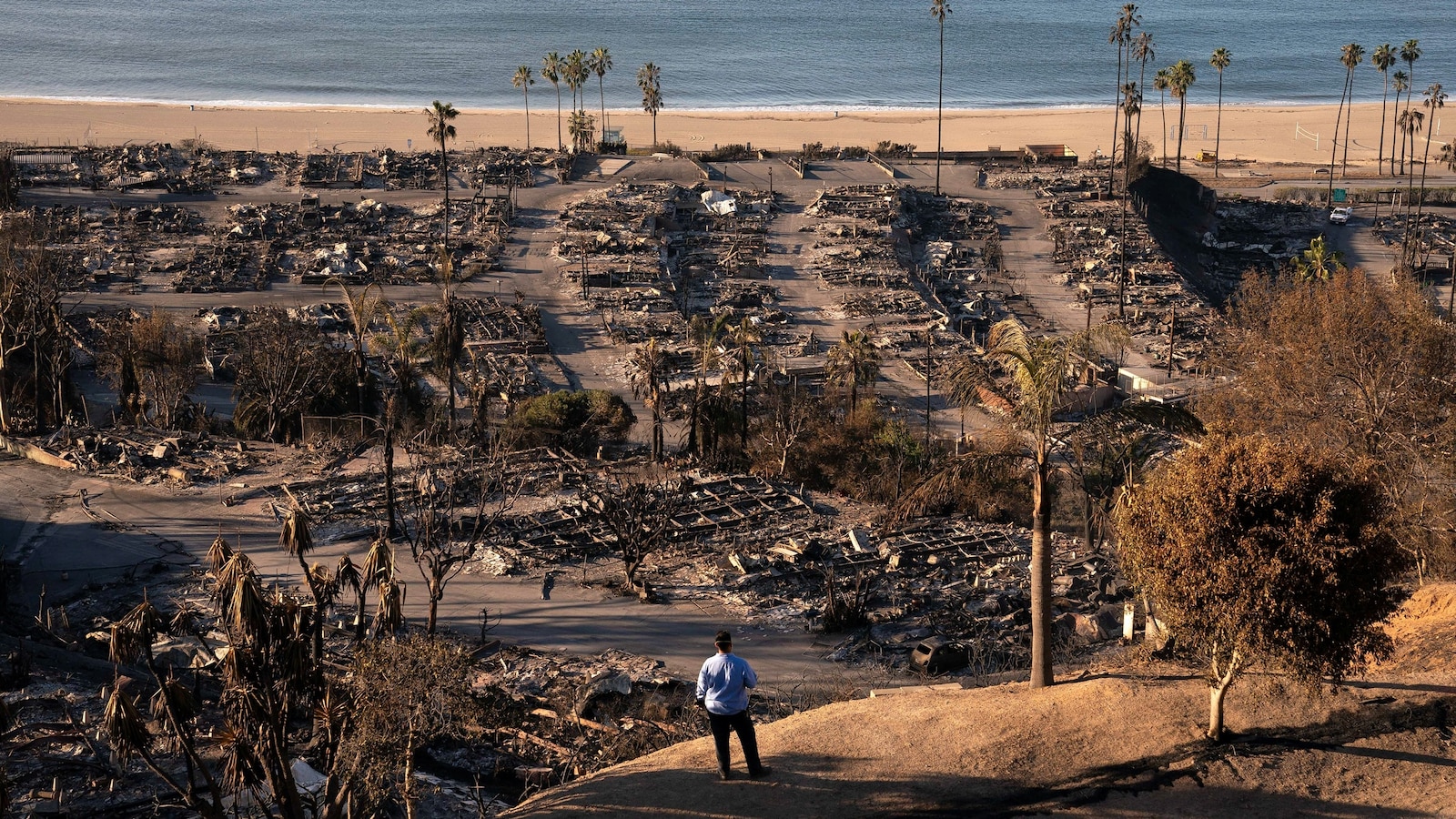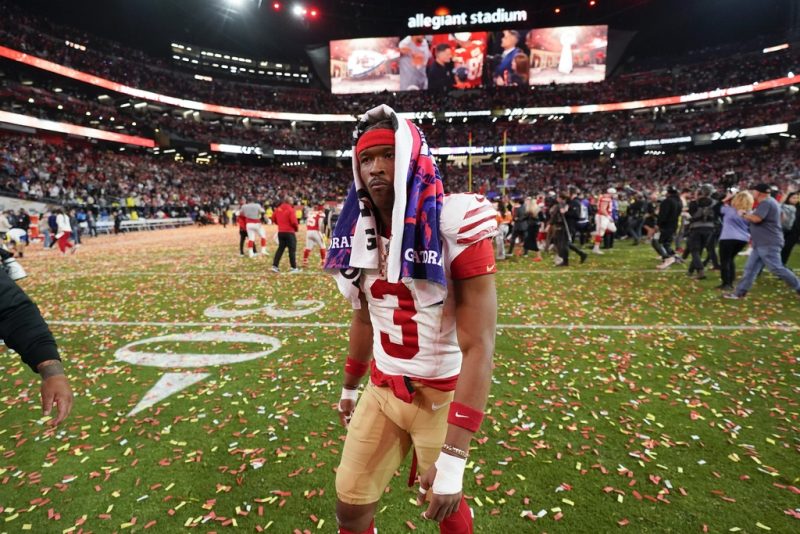Los Angeles Wildfires And The Ethics Of Disaster Gambling

Table of Contents
The Growing Market of Disaster Betting
Disaster betting, encompassing prediction markets and insurance derivatives, is a burgeoning industry. While seemingly abstract, these markets function by allowing individuals and institutions to bet on the probability and scale of events like the Los Angeles wildfires. The increasing frequency and intensity of these wildfires, fueled by climate change and urban sprawl, have made them an attractive—and ethically troubling—target for speculation.
- Specific Betting Markets: These markets might involve predicting the total acreage burned in a wildfire season, the number of homes destroyed, or even the specific areas most affected. Sophisticated models using historical data, weather patterns, and fuel load assessments are often employed to inform these predictions.
- Data and Predictive Modeling: Advanced algorithms and data analysis play a crucial role in informing these bets. Companies and individuals utilize vast datasets to create predictive models, attempting to forecast the severity of wildfires with increasing accuracy.
- Accessibility: The accessibility of these markets is another factor contributing to their growth. Many operate through online platforms, making participation readily available to a wide range of individuals and institutions.
Ethical Concerns Surrounding Wildfire Speculation
The ethical implications of profiting from the suffering and environmental devastation caused by Los Angeles wildfires are profound. The very act of placing a bet on a natural disaster inherently raises questions about the morality of profiting from human misery and environmental destruction. Beyond the moral repugnance, several key ethical concerns arise:
- Profiting from Suffering: The core ethical objection is straightforward: is it morally acceptable to profit from the misfortune of others? The devastation caused by wildfires includes loss of life, displacement, and immense emotional trauma. Turning this suffering into a commodity for financial gain seems deeply problematic.
- Market Manipulation and Misinformation: There's a significant risk of market manipulation and the spread of misinformation influencing wildfire predictions. False or exaggerated information could artificially inflate or deflate the market, potentially exacerbating the financial consequences for affected communities.
- Regulatory Oversight: The lack of robust regulatory oversight in many disaster betting markets poses another significant ethical concern. Without appropriate regulations, there’s a risk of unchecked speculation and exploitation, leading to potentially severe consequences for those already vulnerable.
The Impact on Disaster Relief and Recovery Efforts
Disaster betting could significantly impact the allocation of resources for disaster relief and recovery efforts. Inaccurate market predictions could lead to misallocation of crucial resources, potentially hindering effective response and recovery.
- Misallocation of Resources: If market predictions underestimate the severity of a wildfire, it could lead to insufficient funding and support for affected communities. Conversely, overestimation might divert resources from other critical needs.
- Insurance Premiums: The activity in disaster betting markets might affect insurance premiums. Increased speculation could lead to higher premiums for individuals and businesses in high-risk areas like Los Angeles, making insurance unaffordable for many.
- Philanthropic and Government Response: The existence of disaster betting markets could subtly influence the decisions of philanthropic organizations and government agencies responsible for disaster relief, potentially leading to skewed priorities and resource allocation.
Alternative Approaches and Responsible Investment
Instead of profiting from disaster, individuals and institutions can engage in more ethical and constructive approaches:
- Investing in Wildfire Prevention: Investing in wildfire prevention technologies, such as improved forest management practices, early warning systems, and community-based preparedness programs, is a far more responsible use of capital.
- Supporting Disaster Relief Organizations: Contributing to reputable organizations dedicated to disaster relief and community rebuilding directly supports those affected by wildfires, helping to alleviate suffering and promote recovery.
- Advocating for Responsible Regulation: Advocating for sensible regulation of disaster betting markets will help to mitigate the ethical concerns and prevent potential exploitation.
Conclusion: Reframing the Conversation on Los Angeles Wildfires and Disaster Gambling
The ethical concerns surrounding Los Angeles Wildfires and the Ethics of Disaster Gambling are undeniable. Profiting from the suffering and destruction caused by natural disasters is morally reprehensible and potentially harmful to disaster relief efforts. We must shift our focus towards responsible investment strategies that prioritize community well-being and long-term resilience. Let's work together to ensure that future responses to Los Angeles Wildfires and other disasters prioritize community well-being over speculative profit. The ethical implications of disaster gambling demand our attention and require proactive steps towards a more responsible and compassionate approach to managing the risks associated with wildfires and other natural disasters.

Featured Posts
-
 Instituto Vs Central Analisis Del Estado De Salud Del Equipo
May 08, 2025
Instituto Vs Central Analisis Del Estado De Salud Del Equipo
May 08, 2025 -
 Canada Post Facing Potential Strike Action This Month
May 08, 2025
Canada Post Facing Potential Strike Action This Month
May 08, 2025 -
 Universal Credit Changes What Claimants Need To Know
May 08, 2025
Universal Credit Changes What Claimants Need To Know
May 08, 2025 -
 Predicted Nintendo Direct March 2025 Ps 5 And Ps 4 Game Reveals
May 08, 2025
Predicted Nintendo Direct March 2025 Ps 5 And Ps 4 Game Reveals
May 08, 2025 -
 The Real Story Behind The Thunder And Bulls Offseason Trade
May 08, 2025
The Real Story Behind The Thunder And Bulls Offseason Trade
May 08, 2025
